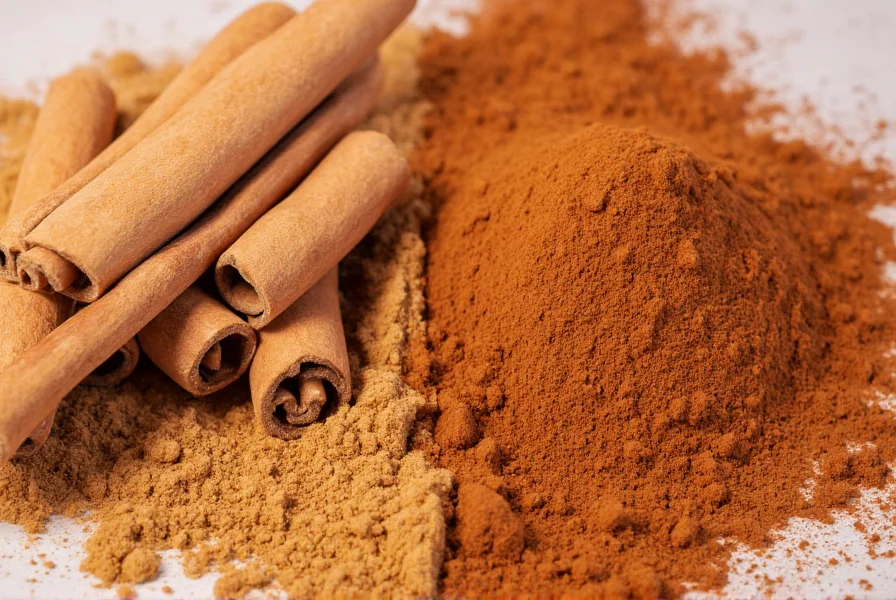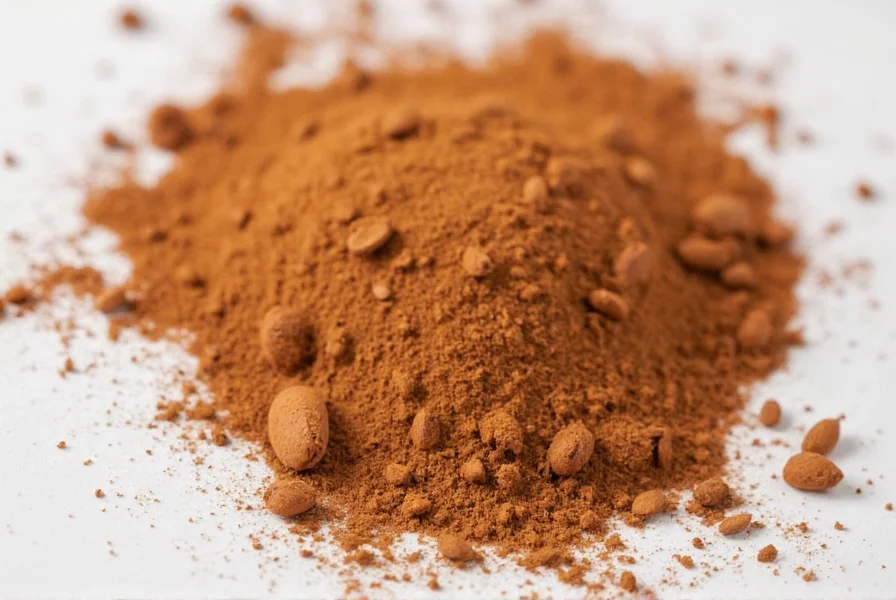For centuries, this fragrant spice has been valued across cultures not just for its warm, sweet flavor but for its potential health-promoting properties. Modern research continues to validate many traditional uses while uncovering new applications for this versatile botanical.
The Science Behind Cinnamon's Benefits
Cinnamon derives from the inner bark of Cinnamomum trees, with over 250 species existing worldwide. The two varieties most commonly consumed are Ceylon cinnamon (Cinnamomum verum) and Cassia cinnamon (Cinnamomum cassia). While both offer health advantages, they differ significantly in chemical composition and safety profiles.
| Characteristic | Ceylon Cinnamon | Cassia Cinnamon |
|---|---|---|
| Also known as | "True" cinnamon | Chinese cinnamon |
| Coumarin content | Very low (0.004%) | High (5-10%) |
| Flavor profile | Milder, sweeter | Stronger, spicier |
| Price | Higher | Lower |
| Recommended daily amount | Up to 2.5 grams | Up to 0.5 grams |
The key bioactive compound in cinnamon is cinnamaldehyde, which gives the spice its distinctive aroma and flavor while contributing to many of its health effects. Additional beneficial compounds include cinnamic acid, cinnamate, and various polyphenols that function as powerful antioxidants.
Evidence-Based Health Benefits of Cinnamon
Blood Sugar Regulation and Insulin Sensitivity
Multiple clinical studies demonstrate cinnamon's potential role in supporting healthy blood glucose levels. Research published in the Journal of the Academy of Nutrition and Dietetics found that consuming 1-6 grams of cinnamon daily reduced fasting blood glucose by 18-29% in people with type 2 diabetes. The spice appears to mimic insulin and enhance glucose uptake by cells, while also slowing carbohydrate digestion in the digestive tract.
For those exploring natural approaches to blood sugar management, incorporating moderate amounts of cinnamon into daily routines shows promise as a complementary strategy alongside conventional diabetes care.
Powerful Antioxidant Properties
Cinnamon ranks among the most antioxidant-rich foods globally, with an ORAC (Oxygen Radical Absorbance Capacity) value significantly higher than many fruits and vegetables. These antioxidants, particularly polyphenols, help combat oxidative stress that contributes to chronic disease development.
Regular consumption of cinnamon may support the body's natural defense systems against cellular damage, potentially reducing long-term risk factors for various health conditions. This makes understanding how much cinnamon should I consume daily important for maximizing benefits while minimizing potential risks.
Anti-Inflammatory Effects
Chronic inflammation underlies many serious health conditions. Cinnamon contains compounds that inhibit inflammatory pathways in the body. Studies show cinnamon extract reduces levels of inflammatory markers like TNF-alpha and interleukin-6.
These cinnamon anti-inflammatory properties may contribute to its potential benefits for conditions involving chronic inflammation, though more human research is needed to confirm therapeutic applications.
Heart Health Support
Research suggests cinnamon may positively influence several heart disease risk factors. Clinical trials have documented reductions in total cholesterol, LDL cholesterol, and triglycerides among participants consuming cinnamon regularly, while HDL ("good") cholesterol levels remained stable.
The spice's potential effects on blood pressure and arterial health further support its role in comprehensive cardiovascular wellness strategies. Understanding cinnamon for heart health benefits provides valuable insight for those focused on preventive care.
Brain Function and Neurological Protection
Emerging research indicates cinnamon compounds may protect against neurodegenerative conditions. Animal studies show cinnamon extract inhibits the buildup of tau proteins and amyloid plaques associated with Alzheimer's disease.
Additionally, cinnamon appears to protect neurons and improve motor function in models of Parkinson's disease. While human studies are limited, these findings suggest promising cinnamon brain health benefits worthy of further investigation.
Natural Antimicrobial Properties
Cinnamon has demonstrated effectiveness against various pathogens including bacteria, viruses, and fungi. Its essential oil shows particular potency against foodborne pathogens and common oral bacteria.
These properties explain cinnamon's historical use as a food preservative and its potential applications in oral health products. Exploring cinnamon antimicrobial uses reveals practical everyday applications beyond culinary purposes.

Practical Ways to Incorporate Cinnamon
Adding cinnamon to your daily routine requires minimal effort but delivers maximum flavor and potential health benefits. Consider these simple approaches:
- Add ½ teaspoon to morning coffee, tea, or smoothies
- Sprinkle on oatmeal, yogurt, or fruit salads
- Use in savory dishes like curries, stews, and roasted vegetables
- Create a cinnamon-honey throat soothe by mixing with warm water
- Make cinnamon tea by steeping sticks in hot water
When selecting cinnamon, opt for Ceylon variety when possible due to its lower coumarin content. If using Cassia, limit daily intake to no more than ½ teaspoon to avoid potential liver effects from excessive coumarin consumption.
Safety Considerations and Potential Side Effects
While generally safe when consumed in culinary amounts, cinnamon may cause issues for some individuals:
- Coumarin sensitivity: Cassia cinnamon contains high levels of coumarin, which in excess may cause liver damage in susceptible individuals
- Allergic reactions: Some people experience mouth sores or skin irritation
- Medication interactions: May enhance effects of blood thinners and diabetes medications
- Pregnancy considerations: High medicinal doses should be avoided during pregnancy
Most adults can safely consume up to 1 teaspoon (2-4 grams) of Ceylon cinnamon daily or ½ teaspoon of Cassia cinnamon without adverse effects. Those with liver conditions or taking medications should consult healthcare providers before using cinnamon medicinally.
Conclusion: Maximizing Cinnamon's Potential
Cinnamon represents a remarkable example of how traditional wisdom often aligns with modern scientific understanding. Its diverse health-promoting properties—from blood sugar regulation to antioxidant protection—make it a valuable addition to a health-conscious diet.
By choosing the appropriate cinnamon variety, consuming it in sensible amounts, and incorporating it into daily routines through simple culinary applications, individuals can potentially harness these benefits safely and effectively. As research continues to evolve, our understanding of what are cinnamon good for will undoubtedly expand, revealing new applications for this ancient spice.
Frequently Asked Questions
What's the difference between Ceylon and Cassia cinnamon?
Ceylon cinnamon ("true" cinnamon) comes from Cinnamomum verum trees and has a lighter color, thinner bark layers, and sweeter flavor. It contains significantly less coumarin (a compound that may affect liver health in large amounts) than Cassia cinnamon, which is darker, thicker, and more commonly found in supermarkets. For regular consumption, Ceylon is generally preferred due to its superior safety profile.
How much cinnamon should I consume daily for health benefits?
For Ceylon cinnamon, up to 2.5 grams (approximately ½ teaspoon) daily provides benefits without safety concerns. For Cassia cinnamon, limit intake to 0.5 grams (about ⅛ teaspoon) daily due to its higher coumarin content. Most studies showing health benefits used 1-6 grams daily, but these typically involved short-term therapeutic use under supervision rather than regular consumption.
Can cinnamon help with diabetes management?
Research suggests cinnamon may improve insulin sensitivity and help lower fasting blood glucose levels. Multiple studies show reductions of 18-29% in people with type 2 diabetes consuming 1-6 grams daily. However, cinnamon should complement—not replace—standard diabetes treatments. Those using blood sugar medications should consult their healthcare provider before adding cinnamon, as it may enhance medication effects.
Are there any risks associated with consuming too much cinnamon?
Excessive consumption of Cassia cinnamon (more than 1 teaspoon daily long-term) may lead to coumarin toxicity, potentially causing liver damage in susceptible individuals. Some people experience mouth irritation or allergic reactions. Cinnamon may also interact with blood thinners and diabetes medications. Most adults can safely consume moderate culinary amounts, but therapeutic doses should be discussed with a healthcare provider.
What are the best ways to use cinnamon for maximum health benefits?
For optimal absorption of cinnamon's active compounds, combine it with healthy fats (like in smoothies with avocado or nut butter) as many beneficial compounds are fat-soluble. Adding cinnamon to carbohydrate-rich foods may help moderate blood sugar response. Using Ceylon variety ensures you get benefits without excessive coumarin exposure. Consistent daily consumption in moderate amounts (⅛-½ teaspoon) appears more beneficial than occasional large doses.











 浙公网安备
33010002000092号
浙公网安备
33010002000092号 浙B2-20120091-4
浙B2-20120091-4